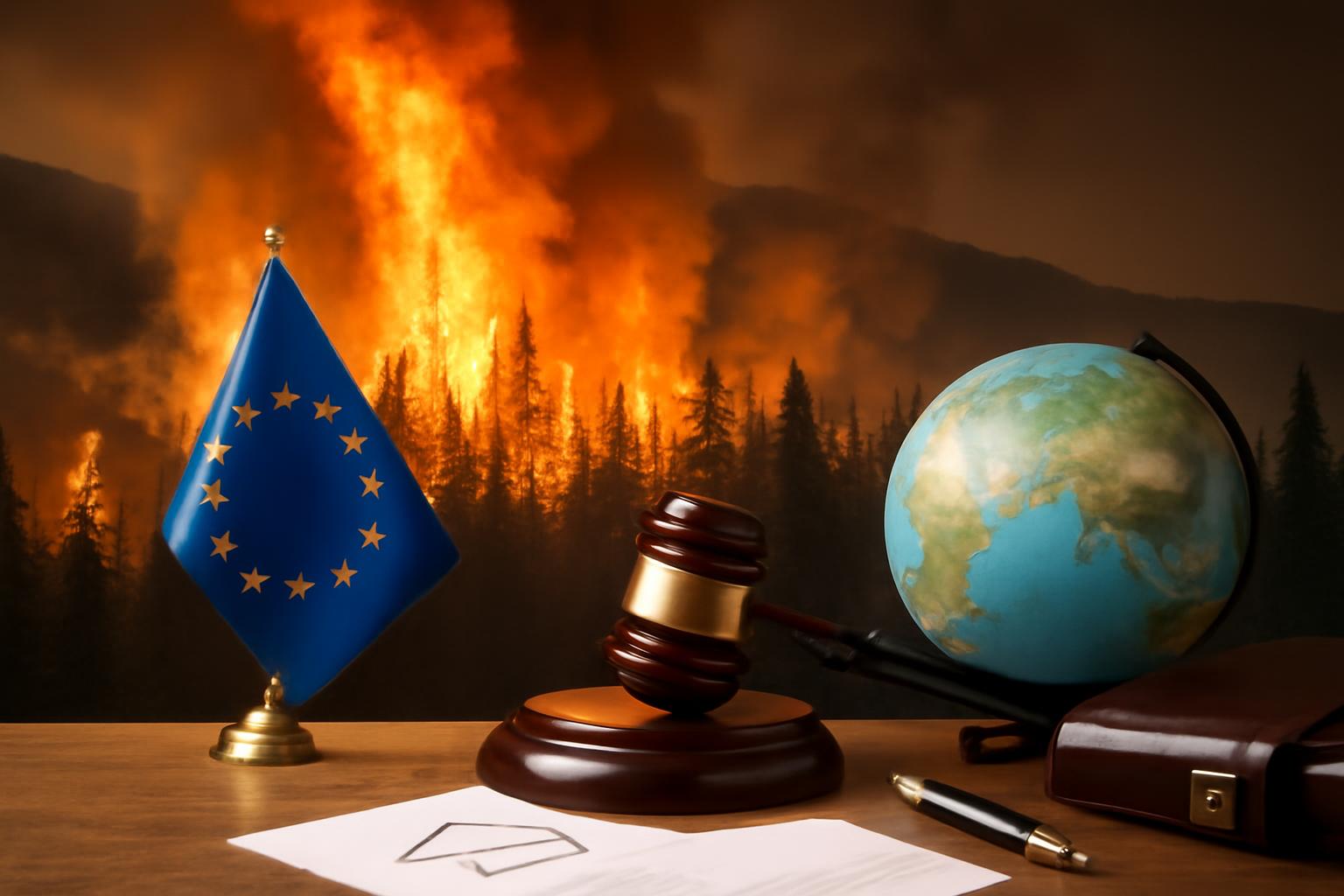Record wildfires have swept across the European Union, consuming a land area of about 1,028,000 hectares—the largest tallied since records began. Spain and Portugal together account for roughly two-thirds of the damage, driven by a blistering mid-August heatwave on the Iberian Peninsula. The fires have taken lives, disrupted rail and road links, and forced evacuations. By late August, cooler weather offered some relief, but fires lingered in Castile and León and in the northern realms of Galicia and Asturias. Portugal was struck by a blaze in Piódão that burned more than 60,000 hectares, the country’s largest ever, finally brought under control after about twelve days. The fires have released some 38 million tonnes of CO2, a new record, illustrating how climate change is making such disasters more frequent and intense and highlighting the importance of prevention, including clearing dry vegetation. By August 23, arson was pointed to in many fires, with more than 300 suspects arrested.
All this, in the language of the moment, is presented as a crisis of climate and circumstance. Yet the lessons run deeper than the weather. We are reminded that risk is not a single line on a map but a phenomenon distributed across farms, forests, roads, markets, and laws. The tragedy of so many fires is not only that nature is harsher, but that our social order—our rules for using property, resolving disputes, and coordinating action—may fail to mobilize the dispersed knowledge necessary to prevent harm in a timely way.
The central question is not merely how to marshal more firefighters or more money, but how to harness the knowledge that lies in countless local decisions. Fire risk accumulates where vegetation dries and accumulates for years, where property rights are unclear, where incentives to maintain land are weak, and where regulation either smothers initiative or leaves people to improvise in the absence of reliable guidance. The signal is clear: prevention depends on local understanding and responsibility, the sort of knowledge that no distant bureaucracy can fully grasp or predict.
A free society does not thrive by pretending to know every risk from a single vantage point. It thrives when individuals and private actors bear the consequences of their choices, when property rights create clear accountability, and when markets and contract-based arrangements—augmented by predictable, rule-of-law governance—channel resources to where they will be most effective. In forestry and land management, that means incentives for owners to maintain fire breaks, remove dry undergrowth, and invest in prudent risk management. It means insurance structures and private risk-sharing arrangements that price fire exposure and reward preventive work rather than subsidize neglect.
Policymakers often respond to calamity with slogans—a call for more coordination, more control, more top-down planning. Yet the history of social order teaches that the most adaptive responses emerge not from central commands but from the interplay of local knowledge and voluntary cooperation. To reduce the harmful consequences of fires, the aim should be to improve the conditions under which dispersed actors make prudent decisions: secure property rights, clear liability rules, transparent incentives, and a legal environment that protects contract and encourages investment in risk reduction. Cross-border cooperation within the EU can help, but it cannot substitute for a framework that makes individual land managers and communities more capable of acting responsibly in the face of danger.
The fires also remind us of the limits of fear-driven policy. If the state promises protection through heavy-handed intervention, it may blunt the very incentives that drive people to innovate and safeguard their own resources. Climate change, if it is real, will not yield to attempts to micromanage every risk from a single seat in a capital; it will be managed best through institutions that align private interests with long-run public resilience. Prevention, then, is not a matter of subsidies to zealously centralized plans but of restoring and preserving the conditions in which ordinary people can make ordinary prudent choices—through property, rule of law, and a market that prices risk and rewards foresight.
In the end, the crisis of the fires is a test of freedom under uncertainty. Do we trust the dispersed capacities of tens of thousands of landowners, communities, and local authorities to act in a coordinated, timely way? Do we allow the institutions that channel dispersed knowledge—property rights, transparent liability, contract, and competitive markets—to do the heavy lifting, with government serving as a predictable framework rather than a micromanager of every outcome? If we answer yes, we honor the principle that human cooperation, not collective prescription, is the most reliable engine for reducing risk in a world where the weather itself has grown more capricious.
